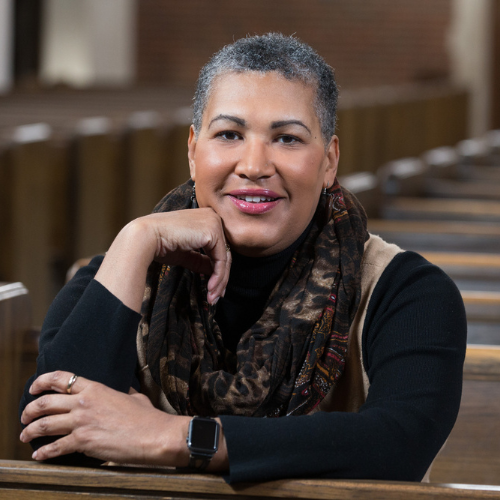Republicans won’t budge on guns. And women and children are dying.
Democrats won’t budge on abortion. And women and children are dying.
You should NOT begin your sermon here (though I did steal the first five words from a news headline from last week and rewrite them for an equal opportunity to express offense). Provocative and true as they may be, even if you have a perfectly partisan congregation and online streaming audience, neither statement will serve the gospel. But you, dear Working Preacher, must be thinking about these as you prepare to preach this week.
Each week the horrors of our existence needs a hook-up with hope. And so, we gather to rehearse the stories that form us into the kind of people—the kind of community—that provides reason for such hope. Only then can we live out that hope for others. Because you can’t be what you haven’t seen, we focus our imagination on what God has done in order to recognize what God is doing. The legends of our faith, storied in Scripture, provide a memorial that will never forget God’s presence, promise, and peace. From this vantage point, we begin to glimpse what God yet will do.
Long before Jesus feed the hungry and welcomed outsiders, Pentecost provided such a memorial. When God shows up, God provides. When God provides, there is plenty. The people, once enslaved, who were given a law to provide for those less fortunate, were reminded that they were image bearers of the God who shows up and provides. Originally a harvest festival, Shavuot, was not connected to any historical event in Israel. Later, the day came to be known as the Feast of Weeks and was also used to commemorate the giving of the Law to Moses at Mount Sinai, but from the record of the Torah, the events did not fall on the same day. Shavuot was simply a reminder for the community to offer thanks for the Creator-Covenanting God for a fruitful summer harvest—a first-fruits celebration.
It was that reason that brought the first-century followers of practices of the ancient Israelites together in Jerusalem. At the recent Festival of Homiletics, Nadia Bolz-Weber reminded participants of Pentecost Sunday 2021, which for her congregation was the first time in nearly two years they were all together in one place. For many others, this year’s Pentecost Sunday service may yet provide the same experience. Some have gathered, as we all must, for family events: smaller birthdays, delayed nuptials, reserved memorials, urgent protests. But this time, this year, they were all together. Those seven words, regarding a regularly scheduled gathering, leap from the reading after three years of hybrid or virtual events.
What is said of these gatherings? How happy we are to see one another. There is even a comfort in being together to mourn the absence of those whose lives on earth ended since our last gathering. The familiarity of returning to a holy habit both affirms our identity and confirms our endurance. We are here. From all over the earth, we have survived. We keep holding on. And here is the preacher’s opportunity to refocus the camera.
The commotion surrounding Pentecost didn’t go unnoticed. There was such an undeniable display of unity and shared mission on that occasion that the first-century title of the event still holds land rights in our mental real estate. The experience of that Pentecost will not be forgotten. In a divided culture of caste and class, when people come together to report that same story, people take notice.
In the midst of the overreach of the Roman Empire, the story of that Pentecost was not human endurance. In the shadow of the public execution of a healer, hope-builder, and harbinger of hospitality, the story of that Pentecost was not lament and loss. In the reality of natural disaster, economic collapse, and social unrest, the story of that Pentecost was not a call to revolt or revival. In the moment where God seemed inconsequential, incompetent, or inconceivable, the people all heard in their own languages that God was powerfully active in human history. In the commotion, the most consistently understandable report was of the mighty things God had been doing. What the day of Pentecost was all about, glorifying God for providing daily bread, quenching thirst, and making possible the healing of the land.
If ever there was a moment when the people would ask for deliverance from hunger and thirst, liberation from oppression, and peace in a time of trouble, this was the day. That was the promise Jesus had given his disciples as recorded in John’s gospel. (“I will do whatever you ask in my name, so that the Father may be glorified in the Son” [John 14:13].) A cursory reading of the Tower scene should alert us to the significance of this promise Jesus. The problem at Babel was not a unified means of communication. The problem of Babel was the subject of the communication. Of one mind, with complete disregard for the mission of the Creator to scatter “upon the face of the whole earth” (verse 4), humanity desired to make a name for themselves (as if being a living transcript of the Trinity was too small a title). These ten words can shift the entire perspective of every Pentecost moment: so that the Father may be glorified in the Son. Here is the preacher’s opportunity to refocus the camera.
Each sermon is the preacher’s opportunity to refocus the camera and cue the cast to action. Such a refocus requires a director’s sense of what is the story being told. Some days, the story is about the loss and the longing. Some days the story is about oppression and division. But for the people of God, when we gather together in one place, the story we tell, in our own languages, is the Spirit bearing witness to God’s deeds of power. From this vantage point, we begin to glimpse what God yet will do. Think about these as you prepare to preach this week.
Kind Regards,
Joy

